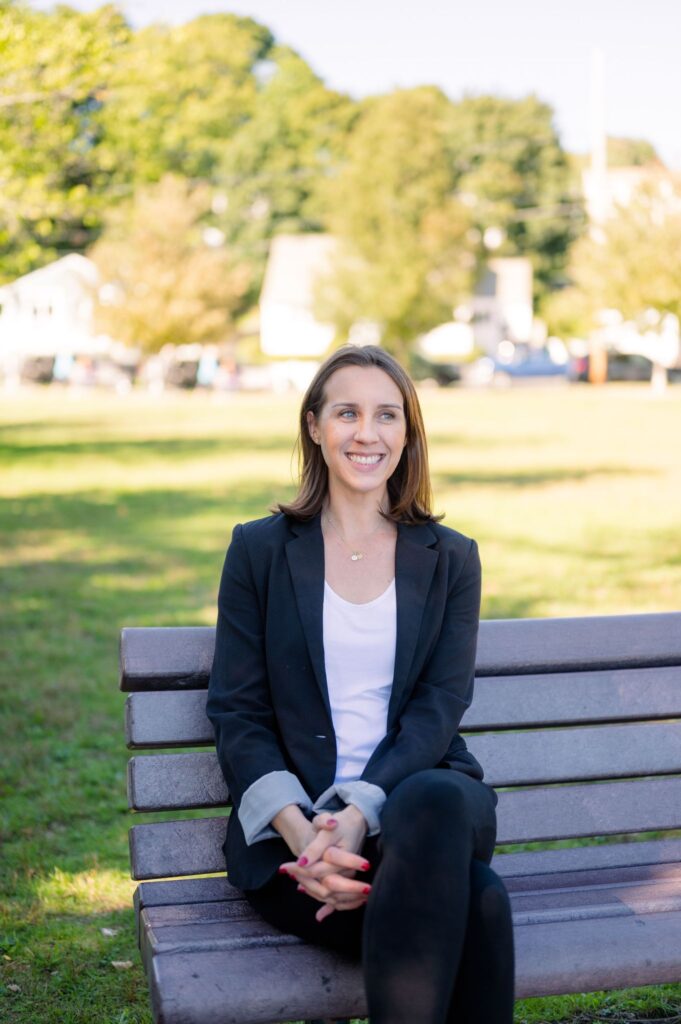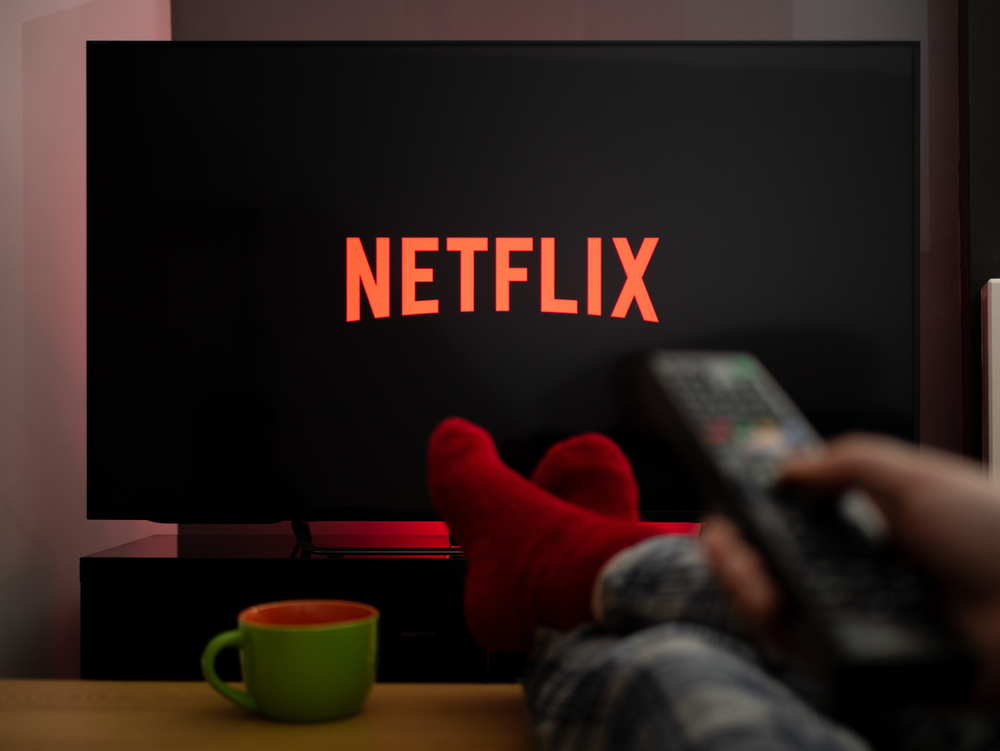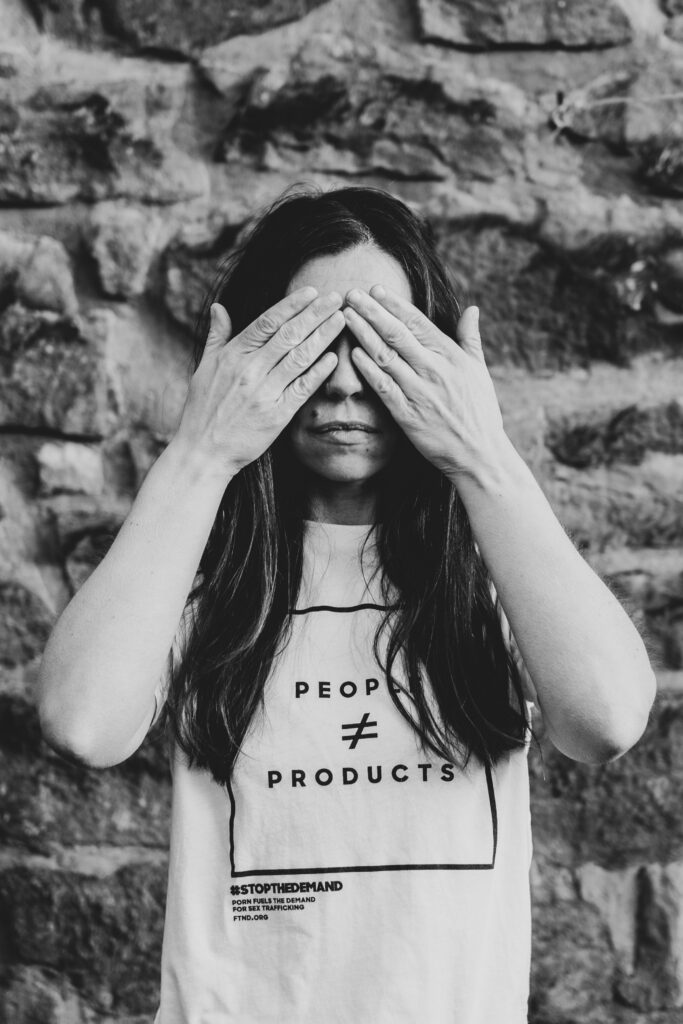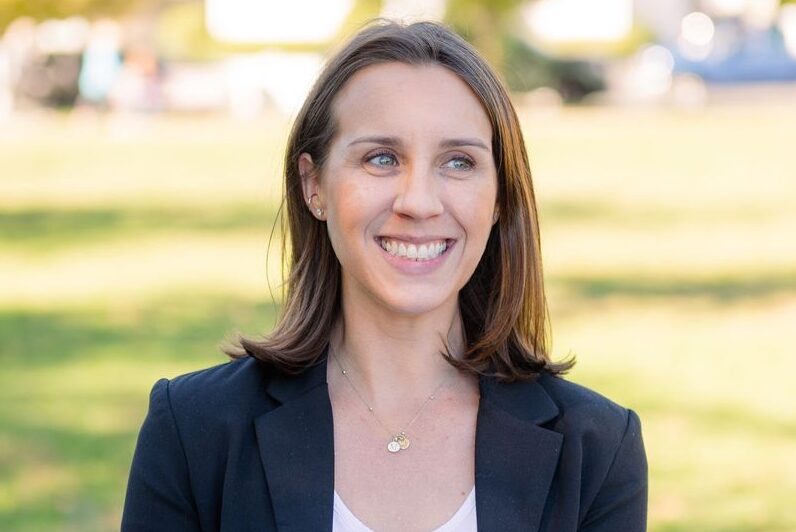Dr. Isabelle Morley Discusses the Shocking Reality of the Reality TV Show “Love Is Blind”
Isabelle Morley, PsyD, is a licensed clinical psychologist in Massachusetts. She majored in Peace and Justice Studies at Tufts University, focusing on interpersonal conflict resolution. She earned her doctoral degree at William James College. Her professional focus has always been on couples’ therapy. In addition to her private practice, she co-founded The Relationship Coaches, which provides resources to couples who want to strengthen their relationships. She also writes for Psychology Today in her blog Love Them or Leave Them, which discusses on-screen romantic relationships.

Dr. Isabelle Morley, PsyD – Licensed Clinical Psychologist in Massachusetts
Bob: Okay, let’s address the elephant in the room. You’re my daughter, Isabelle, although your friends call you Izzy and your family calls you Z. Why are we doing this interview?
Isabelle: Yes, I’m your daughter, but I’m also a clinical psychologist who has found herself immersed in the questionable world of reality TV dating shows, and there’s a sustainability tilt on this. We’ve finally found an intersection of our two otherwise very separate fields!
Bob: Explain how you’ve found yourself in this world. I know you wrote an article that kickstarted it all, right?
Isabelle: Yes. In November 2022, I wrote an article for Psychology Today about the concerning emotional abuse between cast members in Season 3 of the reality TV show Love is Blind. Because most viewers also felt upset by this, the article took off and got over 110,000 views. Some people told me they felt triggered because they were survivors of emotional abuse. They were shocked there was no indication the show attempted to stop the emotional abuse or did not address it during the show’s reunion episode.
Bob: Who is responsible for creating this show?
Isabelle: This is a Netflix show, but there are a few other players. There’s also Kinetic Content, the production company, and Delirium TV, Kinetic’s casting company.
Bob: You know that my work is in the domain of sustainability. The language my world would use for this is that Netflix is the manufacturer and distributor of the product. But they outsource the manufacturing to Kinetic Content who use Delirium TV to access the human capital they need. I’d call Kinetic Content Tier 1 in the supply chain and Delirium TV Tier 2.
Isabelle: Sounds right to me.

UK, March 2020: TV Television feet up watching Netflix on tv. (Photo: Shutterstock)
Bob: Thanks. This sure sounds like a sustainability issue to me in terms of Netflix’s business practices when it comes to the “S” dimension of ESG. Something I personally think is more important than their big focus on climate. But, Z, you know I’ve never watched a reality TV show in my life, so I’d never heard of this one. That’s probably true for a lot of people who will be reading this. Can you please explain what this show is all about?
Isabelle: Happy to. Fifteen men and 15 women in their 20s and 30s go on dates in “pods” where they can’t see each other. The point is to establish a meaningful emotional connection without seeing the other person. When they’re not on dates, they either spend time in the “living quarters” with other contestants of their same gender, or they’re taken to their own hotel rooms. At the end of 10 days of dating this way, participants can choose to get engaged. The engaged couples then meet in a “reveal” where they finally see each other. They go on a short vacation with the other engaged couples, then they return to their hometown and live together for four weeks while they resume their normal lives and plan their weddings. Contestants are contractually obligated to appear at the altar, so some couples break up there while others get legally married.
Bob: Okay, now I understand the title of the show, but you’ve got to be kidding me. Let me be sure I’ve got this straight. People get engaged who haven’t even seen each other and then they’re supposed to live together with all the obvious things that go along with that?
Isabelle: Yes.
Bob: Call me naïve, but why do people do this?
Isabelle: You know, there are two main reasons. The first reason is the more romantic one. Some contestants really want to find a life partner. Modern dating is brutal, as anyone will tell you, and some of these contestants are genuinely hoping to find a wonderful spouse in an unconventional way. The second reason is that some people go on these shows for fame. They want to boost their social media following, and this is a quick way to do that.
Bob: Maybe it’s my age and generation but I find this bizarre beyond belief. But it’s happening, and you say a major consequence is “emotional abuse.” Please explain that term.
Isabelle: Emotional abuse is all about gaining control over the other person. It can be harder to detect than physical abuse because it’s not as straightforward as physical harm like hitting. With emotional abuse, we see behaviors like manipulation, gaslighting, ignoring and isolating the partner, and insulting and humiliating them, among other things. Emotional abuse makes the victim feel disempowered, always to blame, isolated, intimidated, stupid, and questioning their own reality. And emotional abuse is just as damaging as physical abuse; it can leave long-lasting scars like low self-esteem, self-doubt, shame, isolation, fear, anxiety, powerlessness, and even physiological issues due to chronic stress such as heart palpitations and insomnia.

Upset wife sit on couch crying listening to furious husband yelling, unhappy couple have fight or disagreement at home, sad woman feel desperate and down with mad spouse scolding and lecturing. (Photo: Shutterstock)
Bob: What happened after publishing this article?
Isabelle: Many, many people reached out to me. They thanked me for speaking about this issue and expressed concern that the show didn’t stop or address the abuse. People talked about how emotional abuse gets overlooked or minimized and told me they were worried about the contestant and any viewers who felt triggered and upset.
And then things got interesting because I got in touch with two former contestants on Love is Blind and got my hands on their contract.

Wood man figure blind with red ribbon and red heart hanging for background love concept. (Photo: Shutterstock)
Bob: Ah, sounds very interesting indeed! What did the contestants tell you?
Isabelle: The two contestants told me about their experiences, which were far from the fairytale that the show portrays. They felt manipulated by the show’s producers. They told me contestants didn’t always have access to food or water (but that alcohol was always available) and were sleep-deprived. There is a sink in those “living quarters” where they spend time between dates, but it’s completely fake. Contestants can’t get water from it. One told me that some days there were seven water bottles put out for all 15 contestants, and they would have to ask for more (and didn’t always get it).There were no clocks visible, and they struggled to keep track of time. One contestant told me the contestants would ask the crew what time it was, and the crew members would be evasive, not telling them the actual time but saying things like “It’s the afternoon.”
When they weren’t being filmed during the dating phase (when they weren’t on dates in the pods or in the living quarters), the contestants told me they stayed in their private hotel rooms where they couldn’t see or speak to anyone. They agreed to give up their phones (pretty normal for reality TV shows, from what I hear), and agreed not to contact any friends or family. They told me that they and others had “mental breakdowns” during the dating phase because they were exhausted and going through such intense emotions without support. These breakdowns were often people sobbing due to exhaustion and heartbreak or panic attacks, which several cast members have endorsed having on set. The contestants I talked to told me there was no therapist on set. I could go on and on, but if your readers want the full scoop, they can check out the blog published on my website that details everything.
I should add that the New York Times published a piece on this show just last week. In it, producers said there are two psychologists on set, the show covers postproduction therapy, and producers don’t interfere in relationships. This hasn’t been what the contestants told me, but it’s worth noting.

Blind. Additional information. This image is a unique artpiece created by David Underland. The mannequin, the blindfold, the composition, the creativity and the photo and aftereffects or filters are all unique features. (Photo: Unsplash)
Bob: And what was in this contract?
Isabelle: The contract was also concerning. In it, there is a clause stating that contestants agree to pay $50,000 in liquidated damages if they leave the show early without the producers’ approval. So, apparently, if someone was experiencing heightened anxiety or felt unsafe with their fiancé, they couldn’t leave the show without paying this money unless producers agreed. Contestants also can’t talk about the unaired details of the show, at least not without risking retribution. It’s part of the confidentiality and/or publicity obligation. If they breach this obligation, they could be liable to pay $1,000,000. Plus, the contract doesn’t say anything about therapy. One contestant said he was verbally told by producers that they would provide therapy, but he was unable to access that resource despite trying.
Bob: I guess I’m not surprised young people would sign this contract and I’m guessing most don’t have a lawyer review it. That said, it’s pretty incredible to me that Netflix would produce such contracts. All of this sounds bad, but it’s one show with four seasons aired. Only 120 people have been contestants on “Love is Blind.” Come on, Z, that’s not an astronomical number here. You have two young daughters and have a full-time practice. Does it really make sense for you to be spending so much time on this?
Isabelle: I’m glad you asked that because the problem is bigger than how this one show treats its contestants. This is one of many, many reality TV dating shows. And reality TV dating shows have been around since the mid-90s. Love is Blind might be one of the newer hits, but there have been over 25 years of these shows, and that’s a lot of contestants. If they all are subjected to emotional abuse similar to what my Love is Blind interviewees described, that’s a lot of damage.
For scale, just think about one of the more popular shows, The Bachelor. It’s had 27 seasons and The Bachelorette has had 19 seasons. Each season has one bachelor/bachelorette and at least 25 suitors, so we’re talking about over 3,000 people impacted by this show alone.
There is a shocking number of reality TV dating show contestants. I’ve had people from other ones, some from a decade ago, tell me that they felt unsafe or were treated poorly by producers but had no recourse. And that’s just for the dating shows, which are obviously my focus, but there are so many other types of reality TV shows as well.
Bob: Are you just concerned about the contestants, or are there some broader issues?
Isabelle: The broader issue is that millions of people view some unhealthy behaviors and relationships, but they don’t necessarily know this is the case. My concern is that many people who watch this show may not have a good baseline for what a healthy relationship looks like or how to watch this show critically and could develop incorrect or unhealthy ideas of what love is as a result. “This person went through the same thing on ‘Love is Blind,’ it must be ok,” type of thing.” Putting emotional abuse on television without any disclaimers or accountability normalizes unacceptable behavior.
Every day I educate people about what’s healthy versus abusive in relationships. The line can be hard to see. Or, even if it’s not hard to see, it can be hard to accept. Some people tolerate awful behavior from their partners and suffer as a result. So I have a real problem with a show normalizing emotional abuse or modeling unhealthy behaviors/interactions in a relationship to millions of people. And then there’s how they’re treating their contestants to boot. I’m no lawyer or human rights activist but this sure looks like a human rights abuse to me.

Johannes Krupinski Image Collection. (Photo: Unsplash)
Bob: Why do you say that?
Isabelle: By the time contestants sign up, they already owe $50,000 if they want to leave without permission. Essentially, they have to stay on the show and or “pay back” this money. Contestants are getting locked into situations where they have no support (remember, there is no independent therapist on set while they’re dating in pods), and they can’t leave without paying a hefty sum. And then they can’t talk openly about it.
It seems like an industry-wide problem since many of these shows have similar restrictions on contestants. Reality TV contestants aren’t considered employees or actors, so they don’t get the benefits or protections of being in either of those two groups. They aren’t organized, so they can’t come together to bargain for better treatment. It’s a very unregulated industry, and it has been for a long time. I think we’re finally starting to see the problems with this.
It sounds like a human rights violation taking place in a developed country. We think this is only a problem in developing countries, and you tell me companies are addressing this. But it’s a problem right here in America right under our noses. Contestants don’t have any protections. They sign away rights, and I would argue that they shouldn’t be allowed to sign away these rights. As a society, we try to protect people from being exploited, even if people are willing to be exploited.
Bob: Sounds to me like more clever work by their lawyers. So what’s next for you with this?
Isabelle: Well, it’s been a steep hill to climb. After completing these interviews and getting the contract, I contacted over 20 major news sources and publications about this. No bites. I think publications want to stay in Netflix’s good graces and don’t want to cross them . So I published a piece on my professional blog with the full story and an abbreviated article in Psychology Today that focused on the lack of psychological support. I reached out to Netflix, Kinetic Content, and Delirium TV for comment but never heard back. Then, Katie Warren at Business Insider reached out because she was working on an article about Love is Blind. She wrote a fantastic piece about what’s happening to these contestants. She spoke with many of them who reported having panic attacks and received no psychological support. They also felt trapped by producers to stay even when they wanted to leave and suffered mental health issues as a result of being on the show.
Another big step is the launch of the Unscripted Cast Advocacy Network (UCAN) Foundation. Its purpose is to provide mental health and legal support to reality television cast members and advocate for better regulation of the industry. I’m on the board of UCAN as Director of Mental Health Support, along with that Jeremy Hartwell as Executive Director (a former contestant who is suing Love is Blind for inhumane working conditions), and Nick Thompson as Executive Director of Outreach (another Season 2 cast member who is an advocate for ensuring contestants receive support). I think this will be a platform from which we can start to make real change because reality TV contestants, who have previously been silenced and fragmented, can come together in one place with one voice.
And you know me; I live and breathe my beliefs. I know the importance of romantic relationships, so I made my whole career about supporting them. I believe we shouldn’t hurt animals, so I’m an unyielding vegetarian. I was a Peace and Justice Major at Tufts; helping others has always mattered to me. So if there’s a fight to protect people’s mental health, you know I’m here for it.
Bob: Yep, Z, I’ve known you from the very beginning, although I nearly missed your rapid birth when going for a cup of coffee! Mom will never let me forget that 🐥. I love you and I’m very proud of what you’re doing, and you know I’ll do anything I can to help you. This is an important “S” issue in ESG that needs addressing and I’m sure there are others in my world will be supportive of what you’re doing. And I will be contacting them.
SUBSCRIBE TO OUR NEWSLETTER
Subscribe our newsletter to receive the latest news, articles and exclusive podcasts every week


